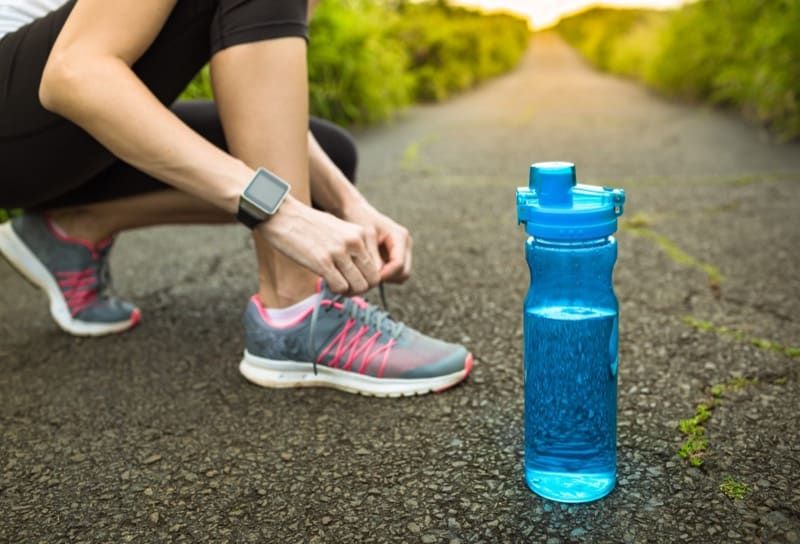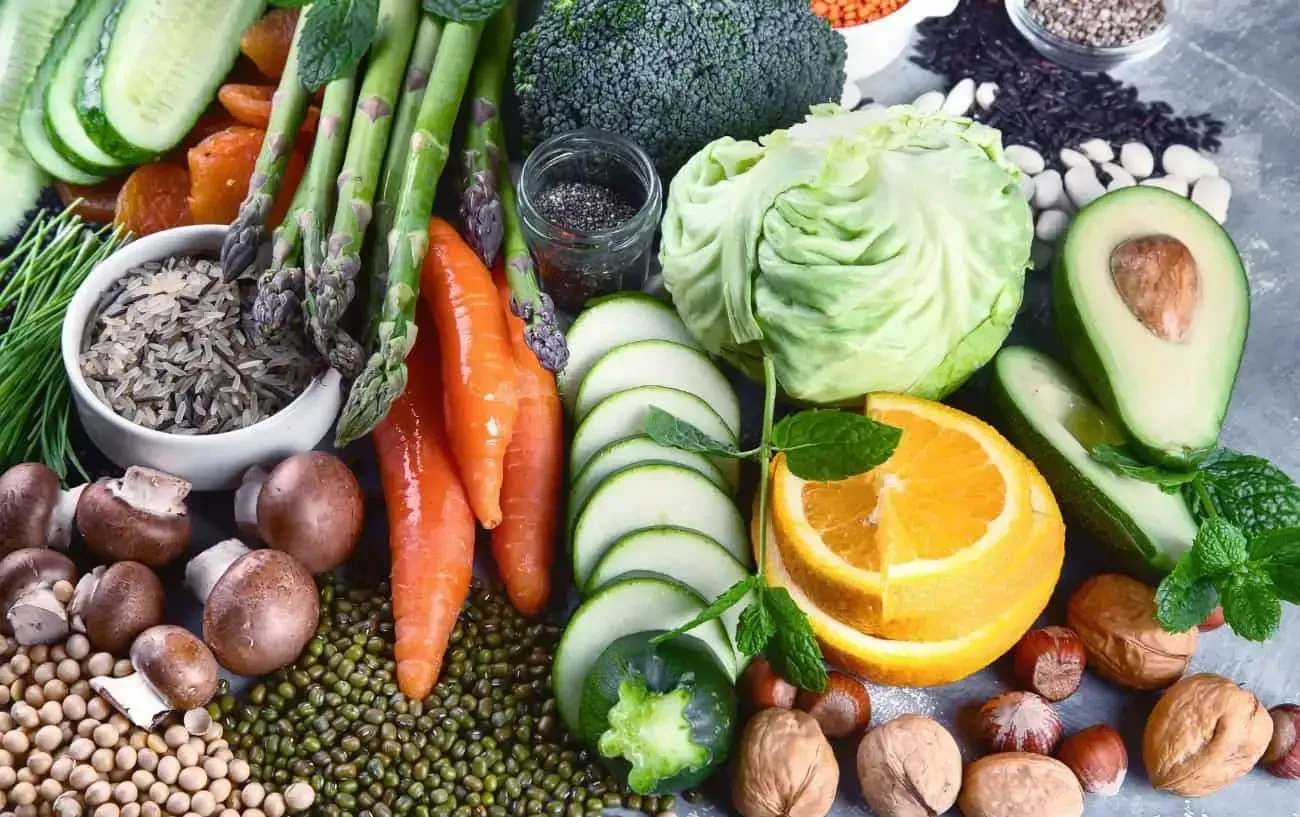Fuel For Success:
A Guide to Eat and Hydrate for Endurance Runs
As a runner, you know that what you eat and drink before, during, and after your run can make a huge difference in your performance. Endurance runs take a lot of energy and stamina, and if you are not properly fueled, you may hit the wall or experience other issues that can hinder your progress.
With this in mind, it's important to have a solid nutrition and hydration plan to fuel for success. In this blog post, we'll be sharing tips and strategies for eating and hydrating for endurance runs.
We are going to discuss:
- Understanding the importance of a balanced diet for endurance runs
- Essential nutrients for endurance running
- Best foods to eat before an endurance run
- What to eat during an endurance run
- Recovering after an endurance run: what to eat and drink
- Hydration tips for endurance runners
- How much water should you drink before, during, and after a run?
- Electrolytes and endurance running
- What to avoid eating and drinking before, during, and after an endurance run
- Conclusion and final tips for fueling your body for endurance running
So, whether you're a seasoned runner or just starting out, read on to learn how to properly fuel for your next endurance run.
1. Understanding the importance of a balanced diet for endurance runs
2. Essential nutrients for endurance running
Endurance running is a demanding sport that requires proper fueling to perform at your best. Your body needs a variety of nutrients to sustain energy levels, repair muscles, and support overall health during long runs.
Here are some essential nutrients that you should include in your diet when training for an endurance run:
1.
Carbohydrates: Carbs are the primary fuel source for endurance runners as they provide the body with glucose, which is converted into energy. It's essential to consume complex carbs such as whole grains, fruits, and vegetables rather than simple sugars found in processed foods.
2. Protein:
Protein is crucial for repairing and rebuilding muscles after long runs. It also helps to regulate blood sugar levels and keep you feeling full for longer. Good sources of protein include lean meat, fish, eggs, beans, and nuts.
3. Healthy Fats: Healthy fats such as omega-3 fatty acids are essential for heart health, reducing inflammation, and improving joint mobility. Good sources of healthy fats include nuts, seeds, avocados, and fatty fish such as salmon.
4. Hydration:
Staying hydrated is crucial for endurance runners as dehydration can lead to fatigue, cramping, and decreased performance. It's recommended to drink water regularly throughout the day and during long runs. You can also consume electrolyte-rich fluids such as sports drinks or coconut water to replenish lost minerals.
By including these essential nutrients in your diet, you can fuel your body for success and achieve your endurance running goals. Remember to consult with a doctor or registered dietitian before making any significant changes to your diet.
3. Best foods to eat before an endurance run
4. What to eat during an endurance run
When running for an extended period, it's important to keep your body fueled and energized. Eating the right foods during an endurance run can help you maintain your energy levels and prevent fatigue or cramping.
During an endurance run, you should aim to consume around 30-60 grams of carbohydrates per hour. This can be in the form of energy gels, chews, or sports drinks. It's important to choose products that you have tried and tested in training as you don't want to experiment with new foods on race day.
Additionally, consuming small amounts of protein during your run can help to prevent muscle breakdown and aid in recovery. Protein bars or snacks like jerky and nuts can be good options.
It's also important to stay hydrated during your run. Dehydration can lead to fatigue, dizziness, and even heat exhaustion. Aim to drink 4-8 ounces of water every 15-20 minutes to stay hydrated. Sports drinks can also be helpful as they provide electrolytes that help to maintain fluid balance in the body.
Overall, it's important to listen to your body during an endurance run and adjust your nutrition plan accordingly. Everyone's body is different, so it may take some experimentation to find what works best for you.
5. Recovering after an endurance run: what to eat and drink
6. Hydration tips for endurance runners
Hydration is crucial for endurance runners. It's important to start hydrating well before your run, and to continue hydrating during and after your run.
Here are some tips for staying properly hydrated:
1. Drink water consistently throughout the day leading up to your run.
This will help ensure that you start your run well hydrated.
2. During your run, aim to drink water every 20-30 minutes.
This will help keep you hydrated and prevent dehydration.
3. Consider drinking an electrolyte sports drink during your run.
These drinks can help replace the sodium, potassium, and other electrolytes lost through sweat.
4. If you're running for longer than an hour, consider bringing a hydration pack or belt with you.
This will make it easier to stay hydrated during your run.
5. After your run, continue to drink plenty of water and hydrating fluids.
This will help your body recover and rehydrate after your run.
Remember, dehydration can lead to decreased performance, fatigue, and even injury. So, make sure you're taking hydration seriously and fueling up before, during, and after your run.
7. How much water should you drink before, during, and after a run?
8. Electrolytes and endurance running
When it comes to endurance running, electrolytes play a crucial role in maintaining optimal performance. Electrolytes are minerals in our bodies that carry an electric charge and help to regulate nerve and muscle function, hydration, and blood pressure. During endurance running, we lose electrolytes through sweat, which can lead to dehydration, muscle cramps, and fatigue.
To maintain optimal electrolyte levels during endurance runs, it%u2019s important to consume foods and drinks that are rich in electrolytes. Some great sources of electrolytes include sports drinks, coconut water, bananas, leafy greens, nuts, and seeds. You can also consider taking electrolyte supplements before, during, or after your runs.
It's important to note that consuming too many electrolytes can also be harmful to your health. Overconsumption of electrolytes can lead to an imbalance in your body's fluid levels, which can cause health issues such as high blood pressure, heart problems, and kidney failure. Make sure to consult with a healthcare professional or a sports nutritionist to determine the right amount of electrolytes for your body and running goals.
In conclusion, electrolytes play a crucial role in maintaining optimal performance during endurance running. Make sure to fuel up with electrolyte-rich foods and drinks, and consult with a healthcare professional or sports nutritionist to determine the right amount of electrolytes for your body. With the right fuel and hydration, you%u2019ll be able to power through your endurance runs and achieve your running goals.
9. What to avoid eating and drinking before, during, and after an endurance run
10. Conclusion and final tips for fueling your body for endurance running
In conclusion, fueling your body for endurance running is critical for success. It's important to remember that every person is different and will require different amounts and types of fuel. It's essential to listen to your body and make adjustments as needed.
Some final tips for fueling your body for endurance running include:
1. Practice your fueling and hydration plan during training runs to ensure it works for you.
2. Don't try anything new on race day - stick to what you know works for you.
3. Fuel and hydrate early and often during the run.
4. Don't forget to replenish your electrolytes, especially if you're running a longer distance.
5. Recover properly after your run with a balanced meal that includes both carbohydrates and protein.
6. Lastly, enjoy the process and celebrate your accomplishments!
By following these tips and properly fueling your body, you can achieve your endurance running goals and perform at your best. Remember to stay hydrated, nourished, and listen to your body throughout the journey. Happy running!
We hope you enjoyed our guide to eating and hydrating for endurance runs. Fueling your body properly is key to achieving success in long-distance running. By following the tips we have provided in this article, you will be able to ensure that you are taking in the right nutrients and staying hydrated throughout your run. Remember, every runner is different, so it's important to experiment and find out what works best for you. Good luck on your next run, and don't forget to stay hydrated!
















